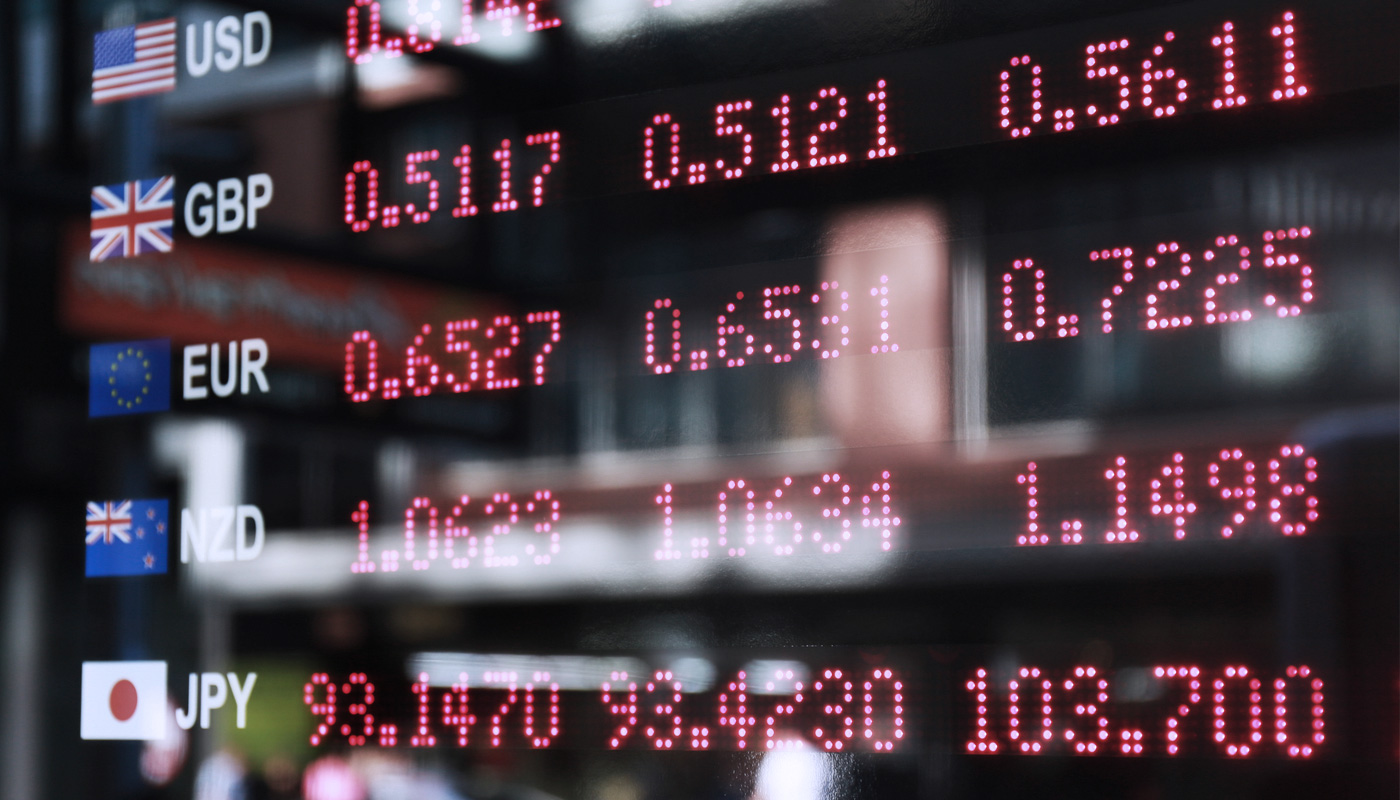You can profit from rising and falling exchange rates with CFDs. A CFD is a “contract for difference”, a contract between two parties stipulating that the seller will pay to the buyer the difference between the current value of an asset and its value at contract time (if the difference is negative, then the buyer pays to the seller instead). In CFD trading, the underlying (baseline) values, such as stocks, indices or commodities are not delivered physically.
CFDs thus offer the same advantages as the traded underlying but without actually owning it. Against this Background CFDs open up a wide range of trading opportunities which you can use either to achieve market-independent returns, to take advantage of risk-mitigating diversification effects or to hedge existing positions (e.g. equity portfolio).
Benefits of CFD trading at one glance:
Source of income in times of low interest rates
Profit from rising and falling exchange rates
Minimise risks by diversifying
Hedge existing positions
Wide range of trading possibilities
Indices
A share index is an indicator of the price or performance of stock markets. As a stock market barometer, it provides comprehensive information on the price development of the relevant reference market. Against this backdrop, investors have the opportunity to position their equity investment from a broad and diversified geographical perspective.
The Bernstein Bank enables indices to be traded capital and cost-efficiently via CFDs.
Automatic rollover, no commission, tight spreads and low margin rates are criteria that our trading partners appreciate.
The contracts for these instruments have limited maturities and expire at the latest on the expiration date. In general, positions are transferred into a new contract with a later expiration date at the latest on the expiration date (rollover).

However, the transfer by us cannot be guaranteed. The transfer of a position includes the closing of the old position and the opening of a new position. In addition to the usual market spread, this procedures also involves the financing costs (swaps). We always try to inform a customer shortly before the rollover of a position by using one of the agreed electronic communication channels. Positions that are held until expiration are automatically transferred to the new contract by the rollover. Depending on the position (long or short), the price difference results in a positive or negative settlement amount that is credited or debited to the trading account. The next binding rollover dates can be found here.
Commodities
Bernstein Bank offers a wide range of raw materials. From precious metals to industrial metals, from fossil fuels such as oil and gas to agricultural raw commodities.
The sometimes high degree of volatility, combined with our favourable fee structure, offers CFD traders attractive framework conditions for successful trading. Automatic rollover, no commission, narrow spreads and low margin rates are criteria that is appreciated by our trading partners.
The contracts for these instruments have limited maturities and expire at the latest on the expiration date. In general, positions are transferred into a new contract with a later expiration date at the latest on the expiration date (rollover).

However, the transfer by us cannot be guaranteed. The transfer of a position includes the closing of the old position and the opening of a new position. In addition to the usual market spread, this procedures also involves the financing costs (swaps). We always try to inform a customer shortly before the rollover of a position by using one of the agreed electronic communication channels. Positions that are held until expiration are automatically transferred to the new contract by the rollover. Depending on the position (long or short), the price difference results in a positive or negative settlement amount that is credited or debited to the trading account. The next binding rollover dates can be found here.
Information about the rollover in OIL.WTI from April 21st 2020 can be found here.
Metals
The classics in the precious metals sector are gold and silver. Thus for thousands of years. As an investment they are used for direct speculation, but also as a hedge of classic, long-term equity investments within turbulent market phases.
At Bernstein Bank, precious metals can be traded capital- and cost-efficiently via CFD. Tight spreads, no commission, attractive margin rates and high liquidity offer traders and investors optimal conditions for their investment style.

Crypto
Crypto currencies are digital means of payment based on cryptographic tools such as blockchains and digital signatures. The blockchain is the system behind the crypto currencies. Transactions are recorded and described in the Blockchain. Any changes caused by transactions are stored on different computers and are therefore difficult to manipulate. As alternative payment systems, crypto currencies are independent of central banks and their control and globally distributed. Whereas in the past virtual money was obtained through the provision of computing power and network infrastructure, today it usually has to be acquired by conventional means. In 2009, Bitcoin, the first crypto currency, was publicly traded.
When trading in crypto currencies via a CFD, the investor speculates whether the price of a crypto currency will rise or fall – without having this crypto currency “physically”.

Foreign Exchange
The term “FOREX” stands for “foreign exchange”, which simply means trading in foreign currencies. Foreign currency trading takes place at the international foreign exchanges in, for example, London, New York, Frankfurt, Sydney and Tokyo. At an average daily turnover rate of US$ 5 trillion, the foreign exchange market is the largest liquid financial market in the world. In times of extremely low interest rates, more and more investors around the world are discovering the profit potential offered by investing in currencies and are using foreign exchange trading as a source of profit to diversify or protect existing currency risks (for example: foreign stocks). Foreign exchange trading is possible 24 hours 5 days a week. As a rule, foreign exchange currencies are designated according to ISO-standardised abbreviations.

Currencies
Foreign currency exchange is based on the simultaneous purchase and sale of different currencies on the interbank market. Exchange rates develop as a result of these transactions so that the value for each currency is illustrated in any currency of your choice. Currencies are always traded in pairs. As such, it is not possible to buy or sell only dollars (USD) in currency trading. Euro (EUR) are traded for dollars (USD), dollars (USD) for yen (JPY), etc. Popular and very well-known currency pairs are for example: EURUSD, EURJPY, GBPUSD, USDJPY, AUDUSD. The currency named first is defined as the baseline currency. The second one is defined as the counter currency. The currency pair EURUSD means that the Euro (EUR) is the baseline currency and that the dollar (USD) is the counter currency.


